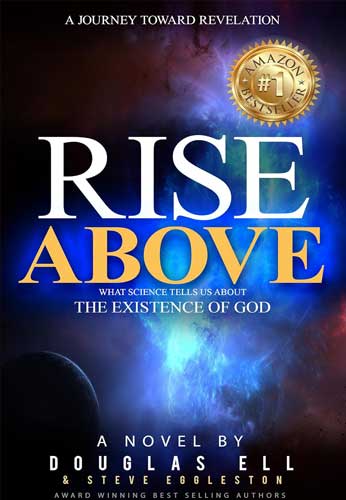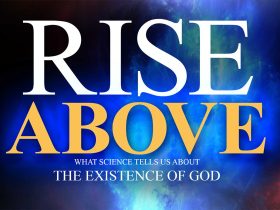When it sticks to science, New Scientist magazine usually does a good job. It reports experimental results in a reasonably non-technical way. But when it touches on religion, it lapses into the usual blunders.
A good example is a letter recently selected as the “editors pick.” The letter claims “Science is belief based on evidence; faith, on the other hand, is belief regardless of the evidence.” So the letter defines faith as having no objective support, and then goes on to bash religion.
English is a complex language, and many words have multiple meanings. The first definition of “faith” in my dictionary is “a confident belief in the truth, value, or trustworthiness of a person, idea, or thing.” The first definition in a popular online dictionary reads basically the same – “confidence or trust in a person or thing.” The second definition in my dictionary is “belief that does not rest on logical proof or material evidence,” the third is basically allegiance (as in “keeping faith”), and the fourth is belief in God. So this New Scientist item ignores the most common usage, the first definition, picks up the second definition, and uses it to bash the fourth definition.
This is not just semantics. At stake is the foundation of Christianity. Is it based on blind trust? To me, belief in God is based on rock-solid scientific evidence. Christianity is based on rock-solid historical evidence. In the Bible, especially the New Testament, you see over and over miracles to prove the existence of God. The Bible doesn’t tell us to believe blindly; it tells us to believe because of the facts. Here’s John 20:30-31:
Jesus performed many other signs in the presence of his disciples, which are not recorded in this book. But these are written that you may believe that Jesus is the Messiah, the Son of God, and that by believing you may have life in his name.
Atheists claim religion is based on blind faith. Unfortunately, they are aided in this deception by church leaders who don’t know the scientific evidence. Here’s a nice excerpt from another blogger (Wintery Knight) on how dangerous this is:
Suppose a pastor or campus group leader wants to avoid having to learn physics and cosmology, or the minimum facts case for the resurrection, or how to respond to apparently gratuitous suffering, or the problem of religious pluralism. Suppose he thinks that Christianity, if it is about anything, is about his feeling happy and comfortable with a minimum of effort and work. So, he diligently avoids reading apologetics, because learning evidence is hard work. He avoids watching debates on God’s existence and the resurrection, because this is hard work. He avoids conversations with people who do study these things, and implies that there is something wrong with them for studying these things. He endeavors to conceal his laziness and ignorance and cowardice from his flock with much pious God-talk and fervent praise-hymn-singing.
Eventually, some member of his church asks him to go for lunch with an actual non-Christian family member. The pastor agrees and when he meets the unbelieving family member, he has nothing at all to say about typical challenges that unbelievers face. He has no knowledge of evolution, the problem of evil, the hiddenness of God, or the hallucination theory. He has never read a single atheist, and never read a single piece of evidence to refute them from Christian scholars. He lacks humility, refusing to admit that other Christian scholars may know more than he does because they have studied other areas. Needless to say, he fails to defend God’s reputation to the non-Christian.
I think this excerpt does a good job of showing why we must understand and share the evidence. Yes, cosmology and physics and molecular biology are hard subjects (and quantum mechanics is in a class of its own). But we need to stand up for God.
We all believe in various things. One definition of a fanatic is someone who believes in something contrary to the evidence. To me, Atheists are fanatics. They deny the overwhelming scientific evidence that our universe was created, that the universe is fine-tuned, that life was created, and that every species on Earth was designed.
Be careful of those who suggest religious faith is blind. They spin a false web of hopelessness that ensnares many good people. Rejoice in God because of the facts, not despite the facts.
Thanks for reading.


















Leave a Reply